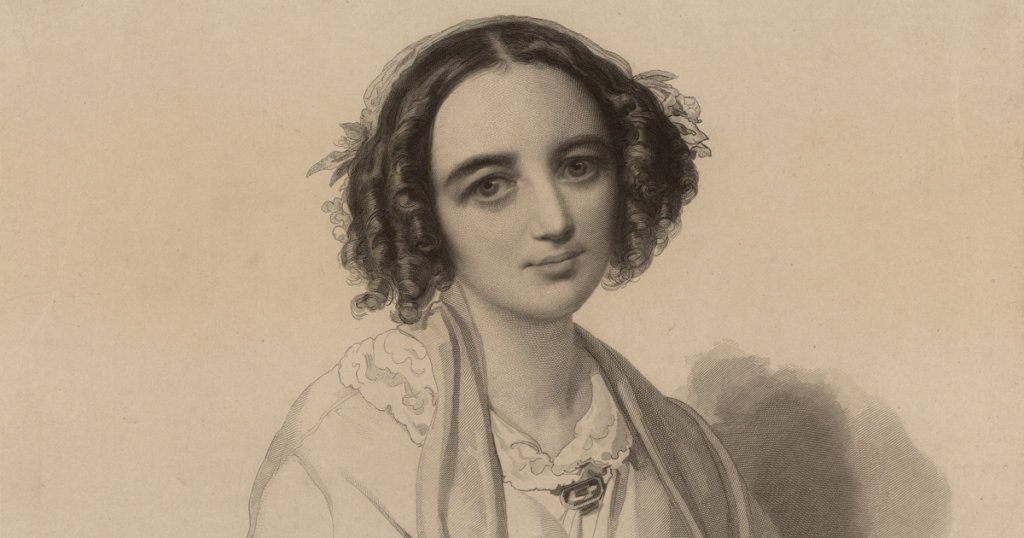
On Monday evening, as I was setting the alarm on my clock radio, I happened to catch the last several minutes of Felix Mendelssohn’s String Quartet in F minor, his opus 80. At once, I regretted not having turned the radio on sooner, for I was transfixed by what I heard: an interpretation that was urgent, volatile, even a touch dangerous. The performance hurtled toward its conclusion with such daredevil ferocity that at any moment it threatened to come undone. I’m happy to report that it all held together nicely, and after the final two chords were struck, I learned the identity of the ensemble—the Quatuor Danel. The recording had been made during a recital last April at the Phillips Collection in Washington.
That F minor Quartet of Mendelssohn’s is arguably the most tormented piece of music the composer ever wrote—not surprising, given the circumstances surrounding its composition. In the late spring of 1847, his sister Fanny Hensel died at the age of 41 from complications following a stroke. (A fine composer in her own right, she had been rehearsing her brother’s cantata Die erste Walpurgisnacht at the time she was stricken.) “What we, her brothers and sisters, have lost!” a disconsolate Mendelssohn wrote shortly afterward.
And I in particular, to whom she was present every moment with her kindness and love; I, who could never experience any happiness without thinking how she would share it; I, who was spoiled, and made so proud, by all the riches of her sisterly love, and whom I thought nothing could ever harm because in everything hers was always the best and leading part. All this, I believe, we cannot yet estimate, just as I still instinctively believe that the mournful news will be suddenly denied. And then again I know that it is all true, but never in all the world will I become inured to it.
Mendelssohn himself had been in declining health, a recent tour of England (in addition to a rigorous work schedule) having left him utterly drained. Now, faced with the ever-present gloom of his sister’s death, he traveled to Switzerland, to Lucerne and Interlaken, in an attempt at recuperation. There, looking “aged and sad,” as a friend reported, and with a newly “stooped” posture, Mendelssohn composed his Quartet in F minor as a requiem for Fanny.
The piece begins in anger, with the cello and viola playing fortepiano, that is, with a jolting accent on their tremolo half notes before immediately becoming quiet. The two violins answer with a quiet tremolo passage of rising and falling eighth notes, setting a mood that is uncertain and agitated. Very soon, a sustained feeling of anguish overcomes the listener, the music turning propulsive; only a few brief melancholy lines provide any respite. If this indeed was Mendelssohn’s commentary on death, he was clearly not facing it with resignation or acceptance, but rather with fury, defiance, even disbelief. We are far from the psychic terrain of the youthful Octet or the spry and playful Midsummer Night’s Dream or the classically elegant Violin Concerto. Not that the composer’s earlier scores didn’t contain their fair share of emotional turbulence. But the lines here are more intense, closer in spirit to the manic brilliance of the later Robert Schumann.
The second movement, a scherzo, offers little relief, with its relentless drive, syncopated rhythms, wonderful dissonances, and chromatic passages. Only with the onset of the third movement, a heavenly Adagio descended from the slow movements of the late Beethoven quartets, can we take a deep, cleansing breath—momentary relief from all that implacable misery. Consider, for example, the first theme, constructed from a falling motif spanning an A flat to a C. This melody, so full of tender feeling, is meant to be sung, reminiscent of an earlier, more lyrical Mendelssohn. But if the cantabile lines are sweet at first, by the middle of the movement, the music surges toward a great outpouring of suffering, and when that initial theme reappears, it has been transformed. It somehow doesn’t sing quite as sweetly as before. Now, it keens. It breaks the heart. Mendelssohn may ease the tension by ending this movement serenely, but the finale is once more tragic, unrelenting from the start, with its furious triplet passages (the lines that the Quatuor Danel had negotiated with such abandon and daring) cascading to an unforgettable ending. Listen to this quartet from beginning to end, and you will encounter one of the greatest expressions of unabated suffering in the repertoire.
Not long after Fanny Hensel’s death, Mendelssohn wrote to his brother-in-law Wilhelm: “This will be a changed world for us all now, but we must try and get accustomed to the change, though by the time we have got accustomed to it our lives may be over too.” How prophetic those words were. The Quartet in F minor would be Mendelssohn’s final work. In late October of 1847, he suffered a stroke. A week later, as Peter Mercer-Taylor writes in his biography, the 38-year-old composer “suddenly became restless and, at length, uttered a single piercing scream before falling into a stupor.” By the following morning, he was dead.
Listen to the Artemis Quartet perform Mendelssohn’s String Quartet in F minor op. 80:

